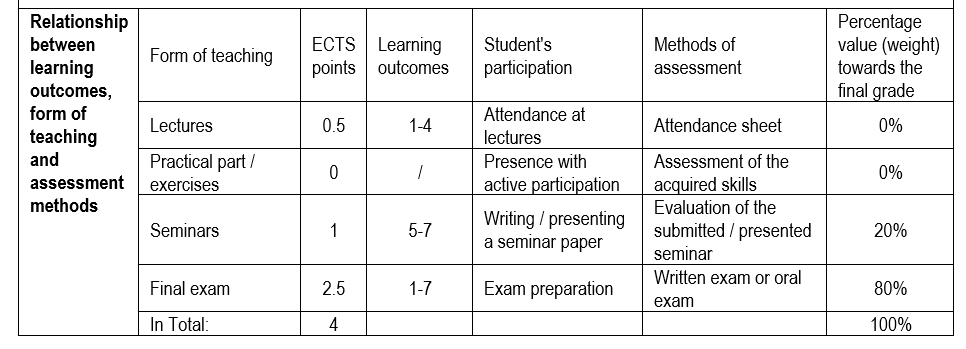Teach students basics of medical psychology, basics of communication with healthy people and patients, communicating in a group, understanding significance of patient-doctor relationship.
The course consists of lectures on the theoretical foundation of communication, practical classes at the faculty where students will receive basic practical instructions for fieldwork and mutual communication exercises as well as practical exercises for fieldwork which will be conducted in health and socio-health institutions (e.g. nursing homes, institutes for rehabilitation of people with disabilities). Throughout and at the end of the practical exercises students will share their experiences with each other and with mentors at the seminars and individual consultations.
The lectures will cover the following fields of communication: conversation with patients, optimal communication, having a conversation, open-ended/closed-ended questions, non-verbal communication, patient-doctor communication and relationship, communication with children and adolescents, communication in team, communication with family, communication with team and family, relationship between colleagues, patient and family, role playing, recording and analysing. Students learn how to communicate with each other in smaller groups based on prepared examples. Students step into the roles of patient, doctor and observer. The exercises are followed by discussion and analysis of communication.
Fieldwork will be conducted in pairs: one student engages in a conversation with a patient or caregiver of a nursing home and the other student observes the communication. It is planned for students to repeat the exercise after receiving feedback from their mentor.
Required course materials:
Balen, S.; Priručnik Menadžment u zdravstvu; Medicinski fakultet Osijek, Osijek, 2012.
Včev A, Burton N: Objektivno strukturirano kliničko ispitivanje - OSKI, Medicinski fakultet Osijek, 1. hrvatsko izdanje, 2015. god.
Upon completion of this course, students will be able to:
- define communication, explain the concept, types, goals and principles of communication;
- compare basic communication styles;
- anticipate basic barriers to communication with the patient and patient’s family member;
- compare and interpret the specifics of communication with children, adolescents and the elderly;
- choose an appropriate leadership style in the team;
- create the communication skills required for working in the dental team and with the patient and his family;
- valorize work in the dental team with regard to ethical principles.



